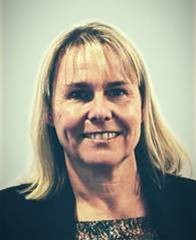Ask your GP to check you for aortic stenosis

Dr Trish Batchelor
Deputy Chief Health Officer
Department of Veterans’ Affairs
I’ve previously written about the importance of heart checks when it comes to heart disease. Today I want to let you know about another simple heart test that can be done by your GP and that could save your life.
GPs are being urged to listen to the heart sounds of all of their patients over the age of 65. Listening to heart sounds is one of the fundamental skills of being a doctor. When we put the stethoscope on the front of your chest and move it to a few positions, it is something we have done thousands of times. We know what sounds normal and what doesn’t. In particular we are listening for ‘murmurs’ – extra sounds that occur when the blood flowing through the valves in your heart is turbulent and makes noise. This might occur if the valve is too narrow (what we call stenosis) or floppy (what we call incompetent).
As we get older, it is quite common for the aortic valve (the main valve that allows blood to flow out of our heart and supply the rest of our body) to become narrowed. This is what is known as aortic stenosis (AS). One in eight Australians over the age of 75 have aortic stenosis and for many it is not recognised until very late.
AS is a severe condition, with 50% of those diagnosed after becoming symptomatic dying within two years if they are not treated. The risk factors for aortic stenosis include ageing, diabetes, smoking, chronic kidney disease and ischemic heart disease.
It is now understood to be much more common than previously thought.
The common symptoms include palpitations (irregular heartbeat), fatigue, shortness of breath, chest pain, feeling faint on exertion, struggling with your usual physical activities, or even sudden collapse. As you can imagine, many of these symptoms could simply be put down to ‘getting older’. The symptoms of shortness of breath, chest pain or sudden collapse tend to come late.
There has been a huge revolution in the management of AS in the last few years, which makes it even more important to have it diagnosed. Treatment of more severe AS is with valve replacement. Previously, this required open-heart surgery. As you can imagine, for many people over 75 this is major and risky surgery requiring a stay in intensive care and then at least a week in hospital and a long recovery. Many older people are just not suitable for this.
Now there is a life-saving revolutionary procedure known as TAVI, which stands for Transcutaneous Aortic Valve Implantation. In this procedure a new valve is placed into the aortic valve via a catheter inserted into the artery in your groin.
The procedure only takes 30 to 60 minutes and after a one-to-two-day period of observation you can go home. Remarkably people can feel better almost immediately. Randomised controlled trials have shown TAVI to be safe, effective and with far fewer complications than open-heart surgery.
Because the valve used in TAVI is made of tissue rather than metal, it doesn’t last as long as a metal valve. For this reason, younger patients (say under 55–60) are usually recommended open-heart surgery as they are better able to withstand the rigours.
My Dad was happy for me to share with you that he recently had this procedure. It was remarkably straightforward and he has noticed dramatic improvements in his exercise tolerance. He is sleeping better and can manage longer drives without becoming tired.
TAVI is an expensive procedure and only a limited number are performed in the public system. The good news is that DVA will pay for this procedure in the private system if you are a Gold Card holder or have an accepted condition of AS.
If you're over 65, even if you feel completely well, next time you see your GP please ask them to have a listen to your chest and check your aortic valve. This takes us five seconds and could save your life. Interestingly, a recent survey of GPs showed that 25% had not heard of TAVI, but if they hear a murmur they should refer you to have further testing with a cardiologist.
A ‘heart team’ comprising cardiologists and a geriatrician assess suitability for TAVI.
By the time you read this, I will have left DVA. It has been an absolute privilege working to support veterans and I leave with an ever greater respect for you all. Thank you all for your service, and stay well.
